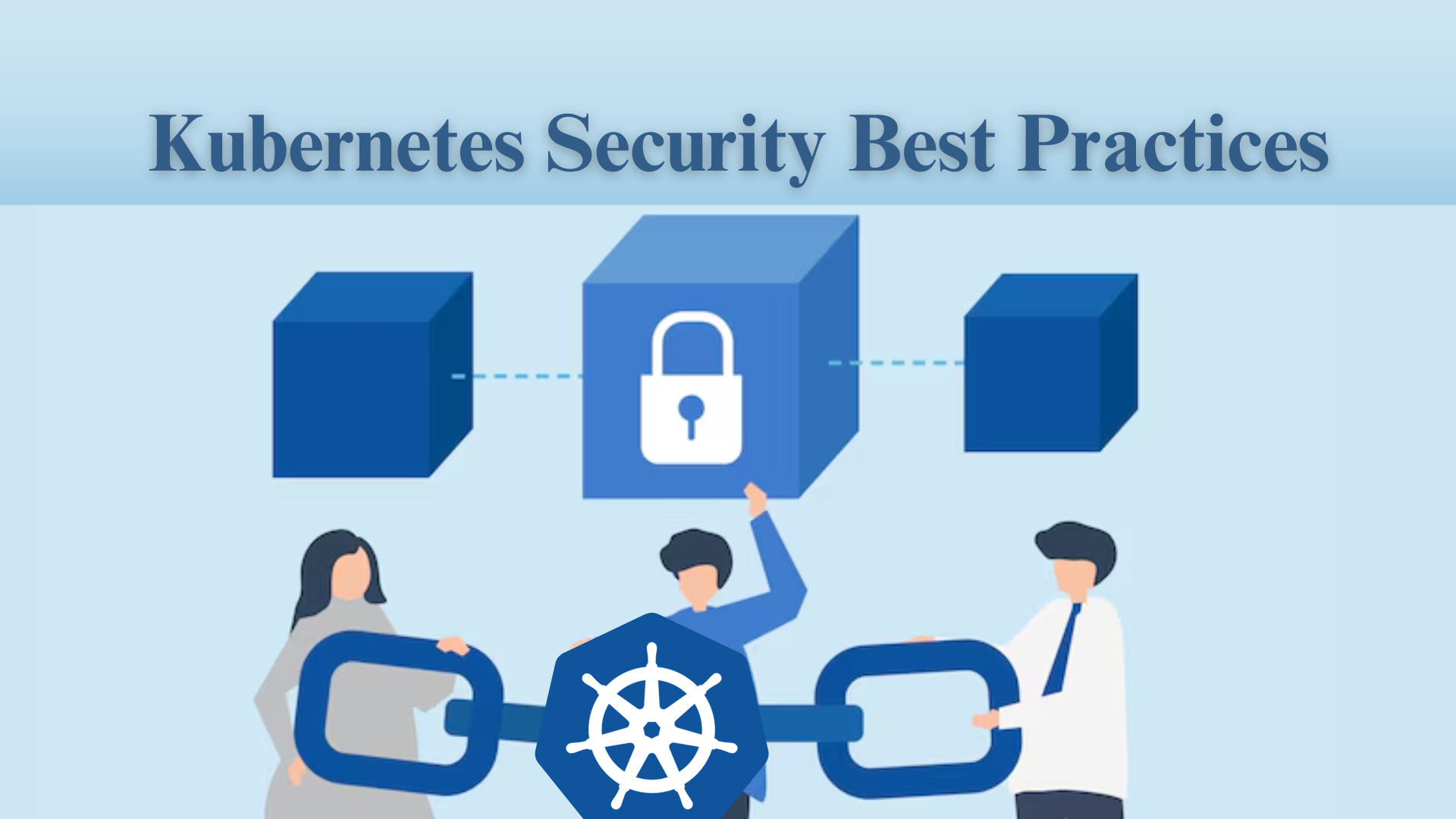Best Practices for Kubernetes Security: Protect Your Cloud Infrastructure
 Ena Vaghela
Ena Vaghela
Securing your Kubernetes environment is more critical than ever as cloud-native applications become the backbone of modern infrastructure. With increasing complexity and growing security threats, safeguarding your Kubernetes cluster requires a proactive approach. In this blog, you will explore the Kubernetes security best practices to help shield your cloud infrastructure from security flaws and preserve the security of your data and apps. These tactics will maintain the security and resilience of your Kubernetes environment regardless of the size of your deployment—from a small one to a vast business cluster.
Understanding Kubernetes Security
Kubernetes security is critical to ensuring the protection and integrity of containerized applications running on the Kubernetes platform. It involves implementing various measures to safeguard the Kubernetes cluster, its components, and its applications from potential threats and vulnerabilities.
Why use Kubernetes? The answer’s simple: the platform's built-in security features, such as Role-Based Access Control (RBAC) and Network Policies, offer advanced protection compared to other orchestration tools. However, common threats in Kubernetes include unprotected access to the API server, open control planes, and unsecured component communication. These problems show how crucial it is to implement well-thought-out security best practices for Kubernetes to safeguard your clusters.
Top 7 Kubernetes Security Best Practices
Ensuring a secure Kubernetes environment requires adopting Kubernetes security best practices tailored to your organization’s needs. Here are 7 key security best practices to safeguard your Kubernetes clusters:
🔵 Role-Based Access Control (RBAC)
Role-Based Access Control (RBAC) in kubernetes is one of the most essential components of Kubernetes security. With RBAC, you may specify fine-grained roles and permissions, guaranteeing that users can access only the required resources. Strict RBAC policy implementation reduces the possibility of unwanted access to critical cluster components. This best practice for Kubernetes security ensures that your system remains resilient against internal and external threats.
🔵 Regular Cluster and Node Patching
Keeping your kubernetes clusters and nodes up to date is crucial. Attackers may exploit known flaws in outdated software. Patching regularly guarantees that you are shielded against known vulnerabilities. As security pitfalls are found and fixed, you must update your cluster's control plane, nodes, and third-party apps.
🔵 Network Policies for Isolating Workloads
Network Policies help isolate workloads by defining and controlling how pods communicate within the Kubernetes cluster. By default, Kubernetes permits unrestricted traffic between pods, which puts the cluster at risk if a pod is compromised. You can limit communication between front-end and back-end pods so that only the necessary pods can exchange information. Further isolation can be achieved by dividing sensitive workloads into distinct namespaces and applying inter-namespace traffic constraints.
🔵 Pod Security Policies(PSPs)
PSPs play a significant role in controlling how pods behave and what permissions they possess. Without a robust policy, misconfigured or insecure pods may be an entry point for intrusions, leaving your cluster highly vulnerable. A well-executed PSP defines strict guidelines to guarantee that only safe, adequately configured containers can operate. When Pod Security Policies are configured correctly, your containers will follow the highest security guidelines, protecting your Kubernetes environment from potential attacks.
🔵 Securing the Kubernetes API Server
Securing the Kubernetes API Server is one of the most critical best practices for kubernetes security. Users and services can communicate with Kubernetes resources through the API server, the cluster's central control plane. An attacker could take complete control of the cluster and cause extensive harm if the API server is breached. Enabling TLS encryption for all communications is crucial for maintaining the security of the API server as it guarantees encrypted interactions between services, users, and the API server. By securing the API server, you protect the core of your Kubernetes cluster, preventing unauthorized access and ensuring the environment's integrity.
🔵 Use Secrets Management
Secrets Management is another critical component of Kubernetes security. Sensitive data, like encryption keys, API tokens, and passwords, are stored in Kubernetes Secrets. If these secrets are not correctly controlled, serious security lapses may occur. Encrypting secrets while at rest is crucial, particularly in the case of etcd, where Kubernetes stores its cluster state. Effective secrets management improves security by preventing sensitive data from being accidentally disclosed or maliciously accessed.
🔵 Auditing and Monitoring Kubernetes
Auditing and Monitoring Kubernetes clusters is a proactive approach to detecting security incidents and ensuring compliance with security policies. Identifying suspicious activity or determining whether a breach has happened becomes challenging without adequate monitoring. Administrators can monitor who is gaining access to what and when using the audit logging functionality Kubernetes offers to capture interactions with the API server.
For organizations looking to strengthen their Kubernetes security posture, Kubernetes consultant can provide valuable expertise. These services ensure cluster security from deployment to operation by assisting companies in putting into practice and upholding the Kubernetes security best practices you have explored. Additionally, Kubernetes consultants provide insights into sophisticated security setups, enhancing infrastructure security and lowering operational costs.
End note
In conclusion, following this Kubernetes security best practice ensures your system remains secure from external and internal threats. Organizations can also significantly reduce the risks of containerized cloud applications. For businesses seeking expert guidance, leveraging Kubernetes consulting services can provide the necessary support to maintain and enhance your security strategy.
Happy Clouding!!
Subscribe to my newsletter
Read articles from Ena Vaghela directly inside your inbox. Subscribe to the newsletter, and don't miss out.
Written by
